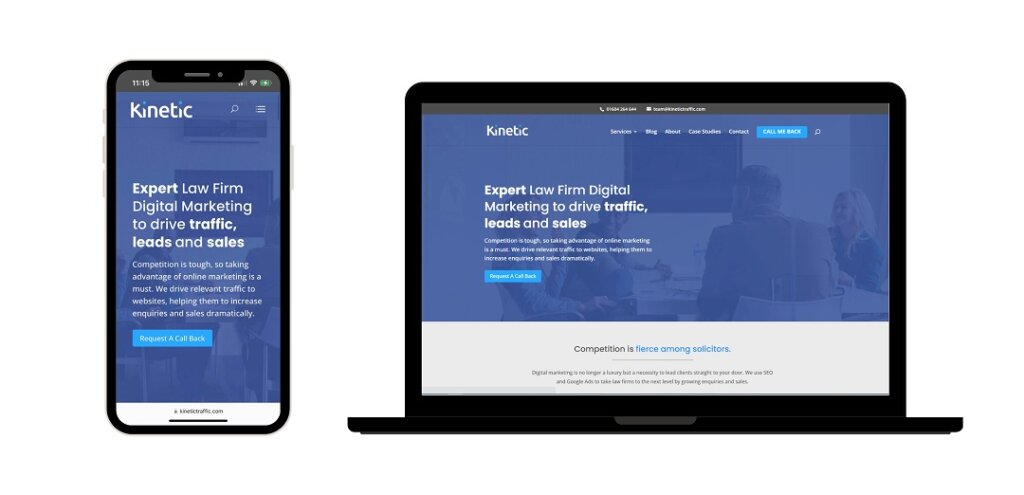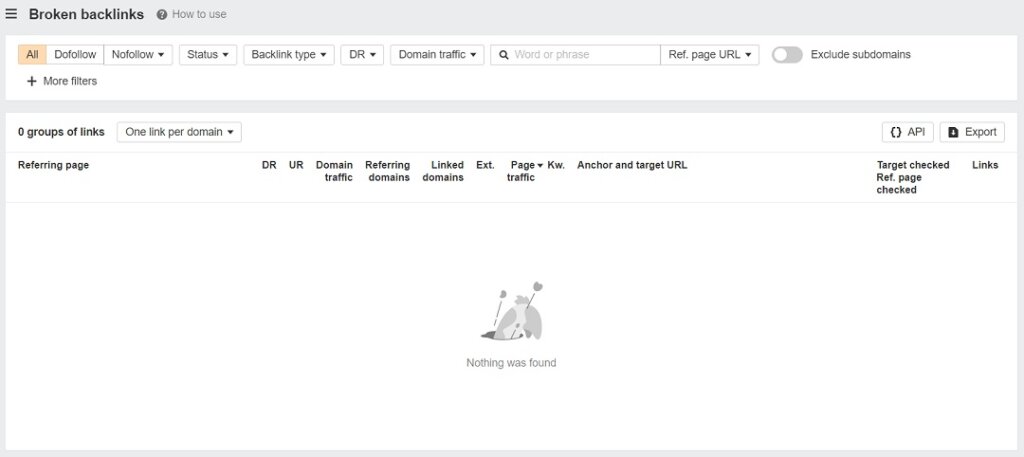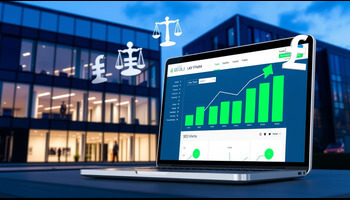4 Ways to Improve Your SEO Score
Search engine optimisation (SEO) is one of the most important aspects of online marketing and, when done right, it can take your law firm to the next level. When you improve your SEO score and rank highly in search engine results pages, you get more website traffic, which leads to more enquiries, more clients and more case wins.
Of course, if it were that easy, then every law firm out there would be doing it. The truth is that SEO is a multifaceted process that takes a lot of time and effort to get right. However, with the right tools and techniques, you can increase your SEO score and start reaping the rewards.
What Does Google Want?
There are over 500 factors that Google takes into account when determining a website’s ranking, but it ultimately boils down to three main principles.
Google is a content discovery tool, and its core goals are:
- To provide the best possible user experience.
- To give people the most relevant information for their search query
- To prevent spam and manipulation of the search results
Therefore, when ranking content, Google rewards sites that are:
- Relevant. The content on your website should be relevant to the keywords you are targeting.
- Popular. The more people that link to and visit your website, the higher it will rank.
- Technically sound. Your website should be correctly coded and optimised for the search engines.
Now that we have established what Google is looking for, let’s take a look at some of the ways you can improve your SEO score. Here are some tips from our SEO team at Kinetic Traffic to help you get the results you want.
#1 – Improve Site Speed
Speed is a big contributor to a website’s overall user experience, and Google has confirmed that it is a ranking factor. A slow-loading website will frustrate your visitors and send them straight to the competition.
There are many ways to improve your site’s speed, including:
- Optimising images. Use a tool like TinyPNG to compress your images before uploading them to your website.
- Minifying code. Remove unnecessary code from your HTML, CSS and JavaScript files.
- Using a content delivery network (CDN). A CDN will host your website’s assets on servers around the world, ensuring fast loading times for all users.
#2 – Mobile Optimisation
Over 50% of internet traffic comes from mobile devices, so it’s important that your website is optimised accordingly.
Google has confirmed that mobile optimisation is a ranking factor, and the majority of its algorithms are now geared towards delivering the best user experience on mobile devices.
There are many ways to make your website mobile-friendly, including:
- Creating a responsive design. This will adapt your website to the screen size of the device being used.
- Using a mobile plugin. A plugin like WPtouch will make your website look and feel like a native app on smartphones and tablets.
- Creating an AMP version. Accelerated Mobile Pages is a new open standard that strips down websites for faster loading times on mobiles.
Google itself also offers a tool called Mobile-Friendly Test to check how mobile-friendly your website is.
#3 – Use Long-Tail Keywords
When targeting keywords, it’s always best to go for long-tail keywords instead of short-tail ones. This is because they are more specific and therefore more relevant to your target audience.
Long-tail keywords also have a lower competition level, so they are easier to rank for. You can find long-tail keywords by using keyword research tools like Google AdWords Keyword Planner or Semrush.
For example, rather than “law firm Birmingham” you might want to target “personal injury law firm Bournville”.
Once you have found some relevant long-tail keywords, you need to include them in your website’s content and metadata. You can also use them in your paid advertising campaigns.
#4 – Optimise Your External Links
Receiving links from reputable websites helps to build your page authority, but don’t forget to include and optimise links to other websites, or external links.
External links are a great way to provide more information to your visitors and help them find what they are looking for. They are also a valuable SEO tool, as Google takes into account the number and quality of external links when ranking content.
When optimising external links, make sure you:
- Include relevant anchor text, which is the text that is used to hyperlink to another page.
- Double check that links are open and accessible
- Only link to trustworthy websites that contain high quality content
- Link to recent content. Linking to old pages that haven’t been updated in a while won’t do you any favours.
- Only include relevant links
Keep links up to date. Remove any that are no longer useful and take special care to get rid of broken links, as these can hurt your SEO score.
Final Thoughts
SEO is a complex process and there is a lot to oversee. The tips included in this article can help you to begin improving your SEO score, but it’s important to remember that SEO is an ongoing process that requires a great deal of time and attention.
If you’re looking for more in-depth information on how to improve your score, take a look at our guide to SEO for law firms. In this ebook, we cover all of the essential elements of SEO and take you through what it really takes to get to the top of the search engine results pages.
Lead your law firm towards the best results.
Get in touch with our team and let’s talk about your marketing needs.













